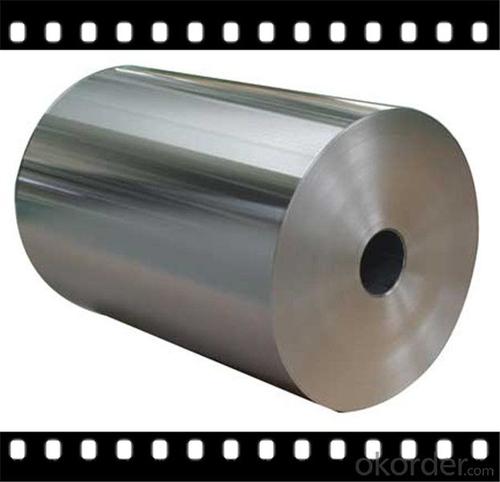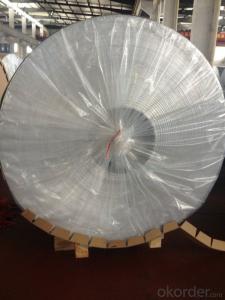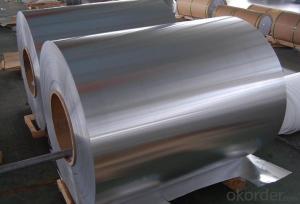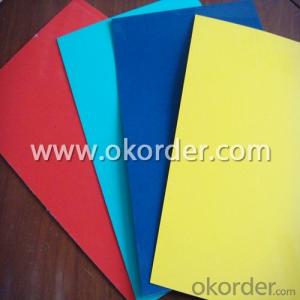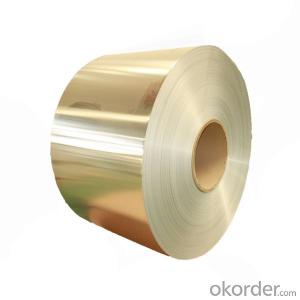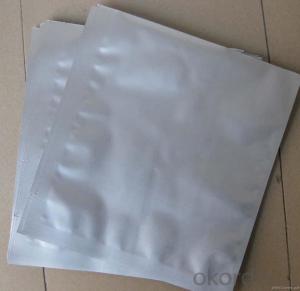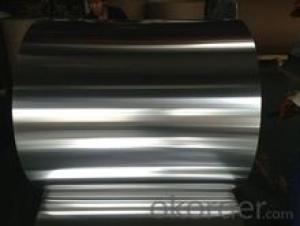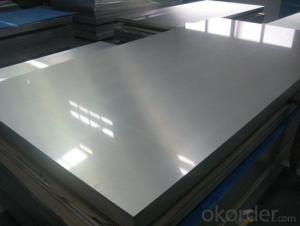Aluminum Foil Coil for Transformer/Electronic Components - DC/CC Aluminium Coil CNBM
- Loading Port:
- Shanghai
- Payment Terms:
- TT OR LC
- Min Order Qty:
- 5 m.t.
- Supply Capability:
- 2000 m.t./month
OKorder Service Pledge
OKorder Financial Service
You Might Also Like
Quick Details
Brand Name: | DC/CC aluminium coil | Model Number: | 1xxx, 3xxx,5xxx, 8xxx | ||||
Application: | Auto parts, household appliances and so on | Thickness: | 0.2~7.0mm, 0.2-7mm | Width: | <1500mm< span=""> | ||
Alloy Or Not: | Is Alloy | Grade: | 1000 Series, 1100 1020 3003 5052 8011 | Surface Treatment: | Coated | ||
Temper: | O - H112 | widthness: | 300-1400mm | ||||
Packaging & Delivery
Packaging Details: | anti-water paper packed inside ,kraft paper or PE ,PVC outside ,wood pallet ,our mini order is 1 ton /pallet |
Delivery Detail: | 10~20 days |
Specifications
1. Aluminum coil
2. Alloy:1xxx,3xxx,5xxx,8xxx
3. Dimension: customized
4. Full stock delivery on time
DC/CC aluminium coil for transformer /electronic components
Grade : 1100.1050,1060,1070,1200, 3003, 3105 ,5052A, 8011. Etc
temper : H14, H24, H18, H12 ,H22 ,H16 ,H26 ,O
Features:
1. Thickness of aluminum coil : 0. 2mm~ 7mm
2. Width of aluminum coil : 1000mm, 1200mm, 1220mm or optional
3. Length of aluminum coil : Optional
4. AA of aluminum coil : 1100.1050,1060,1070,1200, 3003, 3105 ,5052A, 8011. Etc
5. State of aluminum coil : H14, H24, H18, H12 ,H22 ,H16 ,H26 ,O
6.application of aluminum coil :used in construstion and decoration,aluminum roofing ,curtain wall ,hardware and electric appliance manufacture ,automobile manufacture and other industrial and civil purpose ,such as electronic capacitor ,composite cooker,rice cooker ,refrigerator ,computer casing ,airecondtioner radiators,etc.
Status Comparison of Aluminum sheet /Strip | ||||
Temper | Brinnell's Hardness (HB) | Vicker Hardness(HV) | Original Status | Explanation |
O | 19-23 | 23-28 | M soft | Complete annealing state ,suitable for complete annealing to obtain processed product with lowest strength |
H12,H22 | 23-30 | 30-36 | 1/4 hardness | H12 : First anneal in the middle and tehn re-roll to obtain process product with 1/4 hardness; H22 :Directly anneal for 1./4 hardness product |
H14,H24 | 31-40 | 38-42 | half-hard | H12 : First anneal in the middle and tehn re-roll to obtain process product with 1/2 hardness; H22 :Directly anneal for 1/2 hardness product |
H16,H26 | 37*40 | 40-45 | 3/4 hardness | H16 : First anneal in the middle and tehn re-roll to obtain process product with 3/4hardness; H26 :Directly anneal for 3/4 hardness product |
H18 | 40above | 45 above | hard | Hard ,suitbale for processing hardness products |
Terms of Payment: T/T, L/C and other payments
Productivity: 2000 metric ton per month
Certificate: ISO9001,9002,Product Exemption from Quality Surveillance Inspection etc.
Packing: Blank waterproof paper/PE, Kraft, Wooden
Delivery Date: 10---20 days
Min Order: 5 tons
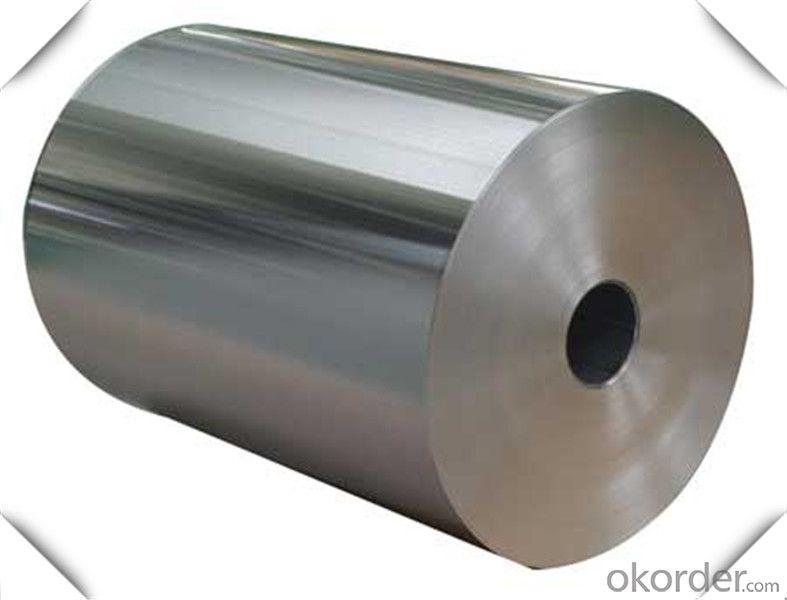
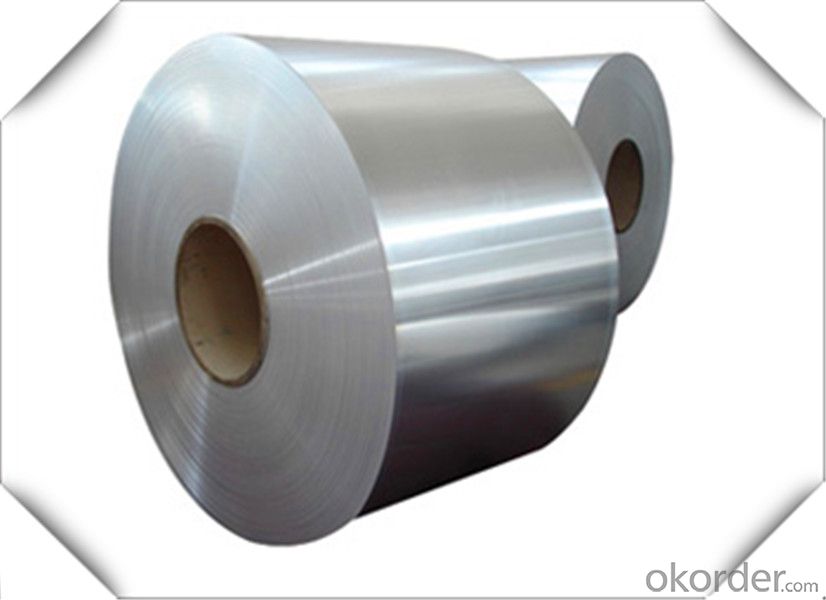
FAQ:
product introduction
the four most common aluminium grades available as sheet metal are 1XXX,3XXX,5XXX series.
1XXX series is commercially pure aluminium,so it is highly chemical and weather resistant.It is ductile enough for deep drawing and weldable.but low strength.It is commonly used in chemical processing equipment,light reflectors,and jewelry.
3XXX series is stronger than 1100,while maintaining the same formability and low cost.
It is corrosion resistant and weldable,It is often used in stampings,spun and drawn paths,mail boxes,cabinets,tanks,reflectors and fan blades.
5XXX series is stronger than 3003 while still maintaining good formability. It maintains high corrosion resistance and weldability,common applications include electronic classis,tanks,and pressure vessels.
- Q: What are the common alloys used in aluminum coil production?
- The common alloys used in aluminum coil production are 3003, 3105, 5052, and 6061.
- Q: Are aluminum coils suitable for lightweight panel applications?
- Yes, aluminum coils are suitable for lightweight panel applications. Aluminum is known for its lightweight and corrosion-resistant properties, making it an excellent choice for lightweight panel applications. Aluminum coils can be easily formed and shaped into panels of varying sizes and thicknesses, making them highly versatile. Additionally, aluminum has a high strength-to-weight ratio, allowing for the creation of strong and durable lightweight panels. These panels find applications in various industries such as automotive, aerospace, construction, and transportation, where weight reduction is important. Overall, aluminum coils are a suitable choice for lightweight panel applications due to their lightweight nature, corrosion resistance, versatility, and strength.
- Q: Can aluminum coils be used for thermal insulation purposes?
- No, aluminum coils cannot be used for thermal insulation purposes.
- Q: Is there any way aluminum can affect you if its absorbed into your body either by digestion, through an open cut, or even through breathing it in?Most likely inhaling it would surely affect you, but what about the other two?
- Aluminium can accumulate in the brain possibly causing alzheimers. If you inhaled it it would poison you and damage your lungs, if you got it in your body it would damage your skin, possibly cause an infection and the cut might not heal. Aluminium is a solid so how could you accidently get it in your body unless you have been melting it etc? If it wasn't solid it would burn you if you got it on your skin. You can only inhale vapours not a metal. If you ate it then it would probably damage or clog up your insides otherwise just pass out in a stool, depends how much you ate. People eat from aluminium and touch it every day so it is not dangerous to be in contact with.
- Q: Is it possible to use aluminum coils as a material for insulation?
- <p>Aluminum coils are not typically used for insulation materials. Aluminum is a good conductor of heat and electricity, which makes it unsuitable for insulation purposes where the goal is to prevent the flow of heat or electricity. Insulation materials are usually poor conductors of heat, such as fiberglass, mineral wool, or plastic foams, which help to retain heat within a space or prevent the loss of heat to the environment. Aluminum coils are more commonly used in applications where heat transfer is desired, such as in heat exchangers or electrical wiring.</p>
- Q: What is the maximum width and thickness of aluminum coils?
- The specific requirements and capabilities of the manufacturer play a role in determining the potential variation in the maximum width and thickness of aluminum coils. Generally, aluminum coils can have a maximum width that spans from 36 inches to 72 inches, or potentially wider. In terms of thickness, it typically falls within the range of 0.006 inches to 0.25 inches. It is crucial to acknowledge that these measurements may differ across industries and applications. Therefore, it is advisable to consult the manufacturer or supplier to ascertain the particular maximum width and thickness that align with your needs.
- Q: Are aluminum coils applicable in the manufacturing process of automobiles?
- <p>Yes, aluminum coils are widely used in automobile manufacturing. They are utilized in various components such as engine parts, body panels, and wheels due to their lightweight, corrosion resistance, and strength. Aluminum's recyclability and energy efficiency also make it an environmentally friendly choice for the automotive industry.</p>
- Q: Can aluminum coils be used in automotive applications?
- Yes, aluminum coils can be used in automotive applications. Aluminum is a lightweight and corrosion-resistant material, making it a suitable choice for various automotive components, including coils. Its high thermal conductivity also allows for efficient heat transfer, making it beneficial for applications such as radiators and air conditioning systems.
- Q: Are aluminum coils resistant to vibration?
- Aluminum coils, typically, exhibit resistance to vibrations. Being lightweight and flexible, aluminum possesses the capability to absorb vibrations and alleviate their effects. Moreover, aluminum coils find extensive usage in crucial areas where vibration resistance holds significance, such as HVAC systems, automotive components, and electrical transformers. The commendable strength-to-weight ratio of aluminum further contributes to its capacity to endure vibrations without distortion or fracturing. Nevertheless, the precise degree of vibration resistance could vary depending on the distinctive design and construction of the aluminum coil.
- Q: hey, my dad and i are working on painting our front door and the current piece of aluminum in front of it wont go with the new color. it doesnt look like it can be changed out so we are wondering, other than spray paint, what can you put on aluminum to make it turn permanently black. my dad mentioned gun blue, but that only works on steel. thanks
- Dad is on the right track....maybe. There are blackeners for aluminum you can get from gunshops. Used to touch up scratched or worn black anodized finish on aluminum gun parts. Never used it in large areas. Best regards
Send your message to us
Aluminum Foil Coil for Transformer/Electronic Components - DC/CC Aluminium Coil CNBM
- Loading Port:
- Shanghai
- Payment Terms:
- TT OR LC
- Min Order Qty:
- 5 m.t.
- Supply Capability:
- 2000 m.t./month
OKorder Service Pledge
OKorder Financial Service
Similar products
Hot products
Hot Searches
Related keywords


